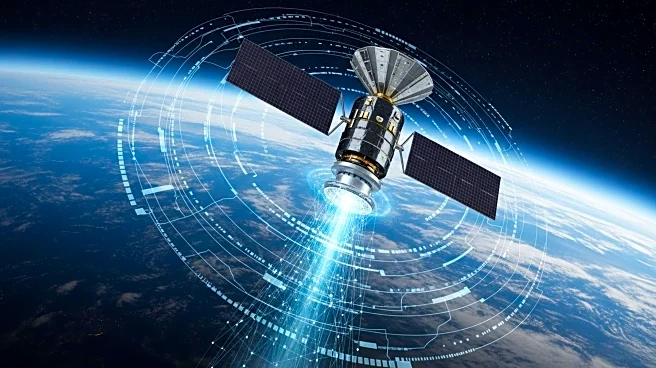What is the story about?
What's Happening?
Starlink, a satellite internet constellation operated by SpaceX, is transforming in-flight connectivity by providing high-speed, low-latency internet services to airlines. Unlike traditional systems that rely on geostationary satellites, Starlink uses a network of low Earth orbit satellites, offering a more reliable and faster internet experience. Airlines such as Air France, Hawaiian Airlines, Qatar Airways, SAS, and United Airlines have adopted or are in discussions to implement Starlink services. The service has rapidly gained traction, with over 2,000 commercial aircraft contracts secured since its market entry in late 2022. Qatar Airways, for instance, has completed installations on 54 Boeing 777 aircraft, providing passengers with free, high-speed Wi-Fi. However, Starlink is not yet approved for all aircraft types and cannot operate in Chinese or Russian airspace.
Why It's Important?
The introduction of Starlink's high-speed internet service is a significant development for the airline industry, which has long struggled with providing reliable in-flight connectivity. This advancement could enhance passenger satisfaction by enabling seamless streaming, gaming, and work capabilities during flights. The competitive landscape for in-flight connectivity is intensifying, with existing providers and new entrants like Amazon's Kuiper service preparing to offer similar solutions. This competition could drive further innovation and improvements in service quality, benefiting both airlines and passengers. Airlines that adopt these advanced connectivity solutions may gain a competitive edge by attracting tech-savvy travelers who prioritize internet access.
What's Next?
As Starlink continues to expand its presence in the aviation sector, more airlines are expected to adopt its services, potentially leading to a widespread upgrade of in-flight connectivity standards. The competition from other satellite internet providers, such as Panasonic's multi-orbit solution and Amazon's upcoming Kuiper service, will likely push the industry towards offering even faster and more reliable internet services. Airlines will need to continuously monitor and improve their connectivity offerings to meet passenger expectations and maintain a competitive position in the market.
Beyond the Headlines
The shift towards high-speed in-flight connectivity raises questions about data privacy and security, as more passengers engage in online activities during flights. Airlines and service providers will need to address these concerns to ensure passenger trust. Additionally, the environmental impact of launching and maintaining satellite constellations could become a topic of discussion as the industry grows.
















